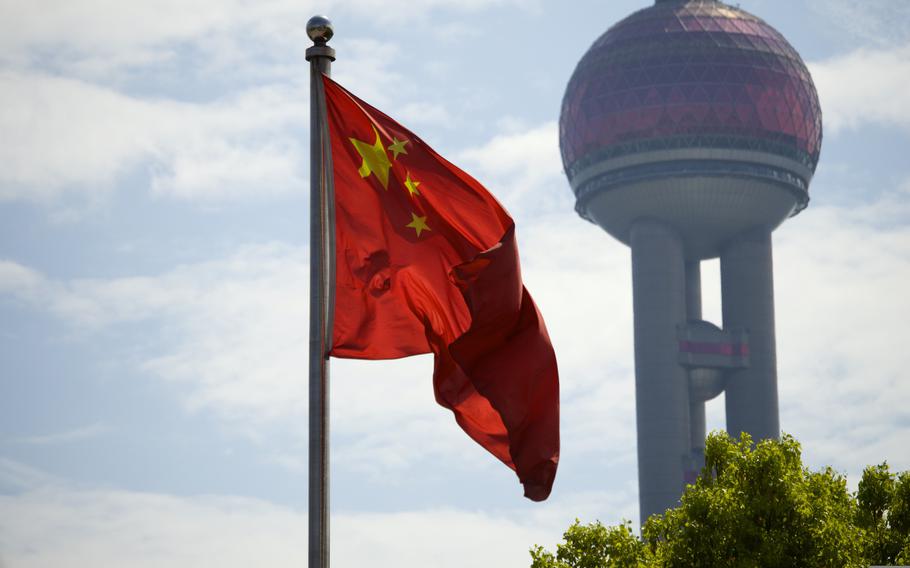
Recent Chinese incursions into Japan's airspace and territorial waters represent a larger strategy, according to defense experts. (Pixabay)
YOKOSUKA NAVAL BASE, Japan — Recent incursions by China into Japan’s territorial waters and airspace showcase a deliberate effort by Beijing to normalize its increasingly assertive actions against its regional neighbors, according to two defense experts.
A Chinese survey vessel on Saturday briefly entered territorial waters off Kagoshima prefecture on Kyushu, the southernmost of Japan’s four main islands. Five days earlier, on Aug. 26, a Chinese Y-9 surveillance aircraft breached Japanese airspace over a small island off Kyushu, an unprecedented action by a Chinese military aircraft.
The incidents add to an already tense relationship between China and Japan, whose claims in the Senkaku Islands are repeatedly tested by the Chinese coast guard. China’s coast guard is even more aggressive against the Philippine coast guard, bumping hulls and employing water cannons and other measures in territorial disputes in the Philippine exclusive economic zone of the South China Sea.
The two incursions of Japanese territory were “provocative and risked flaming tensions in the region,” according to Brian Hart, a fellow with the Center for Strategic and International Studies’ China Power Project.
“The greater long-term implication is that Beijing is employing its military forces in increasingly provocative ways, which heightens the risks of misperceptions, miscalculations, and dangerous accidents,” Hart told Stars and Stripes by email Wednesday.
The actions also underscored Beijing’s “strategy of expansively asserting its power in the region” and highlight its goal to be a dominant power in the Indo-Pacific, according to Jeff Kingston, a professor of Asian studies and history at Temple University’s Japan campus.
“[China] is keen to demonstrate that it is not deterred by the heightened security cooperation between the U.S. and its allies in the region,” he told Stars and Stripes by email Thursday.
Beijing will continue to “probe and assert in an effort to normalize such actions,” something it’s been doing since 2010, Kingston said.
China’s Foreign Ministry denied the military aircraft intended to enter Japan’s airspace, and later defended the survey vessel’s actions as a “fully lawful and legitimate” exercise of its right to transit the area, according to transcripts of press conferences on Aug. 28 and Sept. 2.
“There is no need to arbitrarily link or interpret them,” Foreign Ministry spokeswoman Mao Ning said Sept. 2, according to the transcript. “China remains firmly committed to the peace and stability in this region.”
However, Hart said connecting the two is not difficult given they occurred just five days apart.
Neither Kingston nor Hart could pinpoint Beijing’s motivations for the two incursions.
Kingston suggested that the ongoing U.S. presidential election and the upcoming election for Japan’s Liberal Democratic Party leadership on Sept. 27 could play a part.
The U.S. campaign particularly has featured negative rhetoric about China, but Chinese President Xi Jinping “should not be so thin skinned,” Kingston added.
Hart pointed to a variety of possible causes, including the Japan Maritime Self-Defense Force’s own incursion into Chinese territorial waters on July 4 and a joint search and rescue drill by Japan and Taiwan’s coast guards on July 18.
“Chinese state media has also blasted Japan’s new proposed defense budget, accusing Tokyo of militarism,” he said. “Of course, China’s own defense budget has grown continuously for decades, and Japan’s growing defense spending is largely in response to China’s military buildup and aggression.”
The incursions also drew criticism from U.S. Ambassador to Japan Rahm Emanuel.
“China says it’s still ‘investigating and verifying’ the recent violation of Japan’s airspace by one of its surveillance planes,” he wrote Tuesday on social platform X. “But with a Chinese survey ship sailing into Japanese waters only the other day, two territorial incursions in less than a week looks more intentional than accidental.”
Emanuel doesn’t “pull his punches, which is unusual for a diplomat,” Kingston said. Rather than trying “grab the limelight,” his rhetoric may signal Washington’s support for allied interests in the region, he added.
“Some regional leaders may welcome his calling out Beijing’s unrelenting efforts to modify the regional status quo in its favor,” Kingston said.